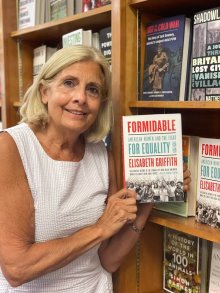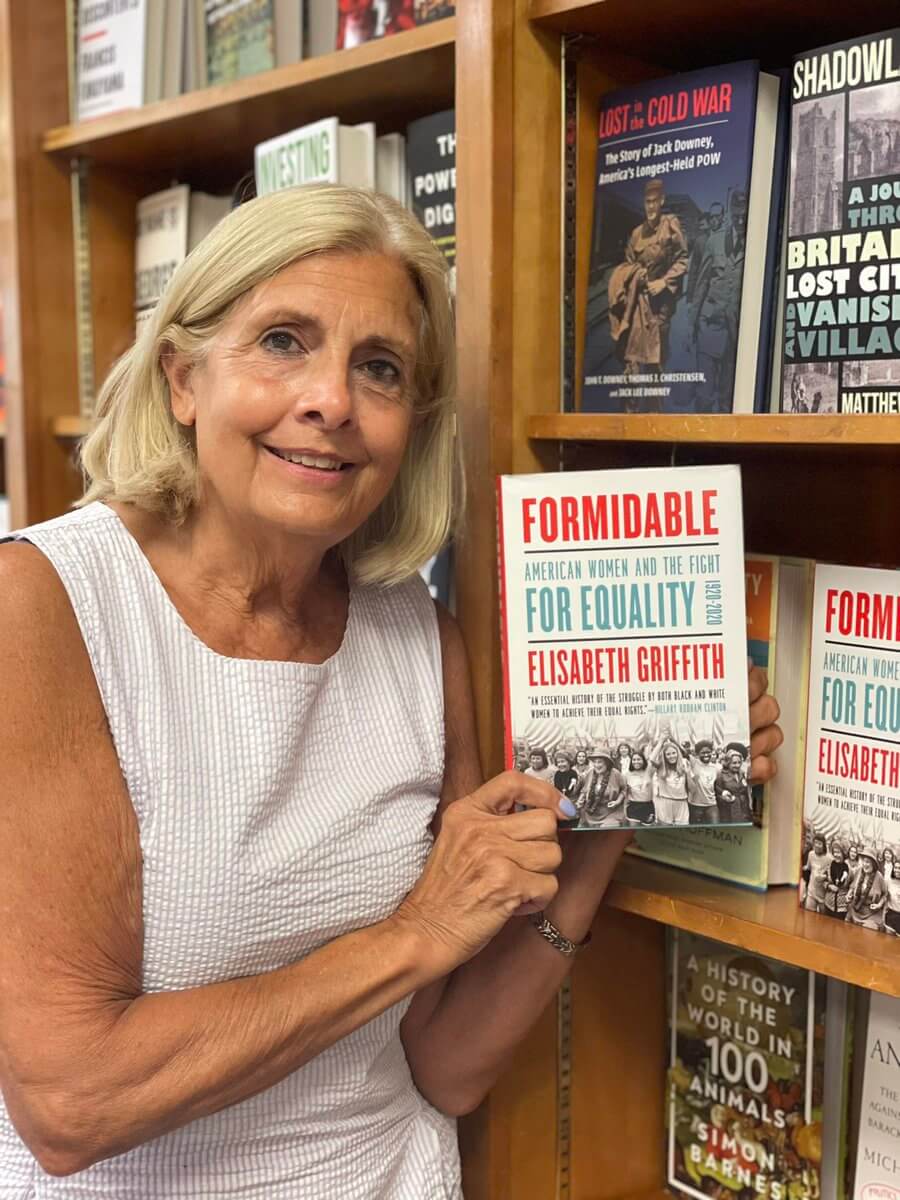
By Betsy Griffith, Author, Historian, and Madeira’s 8th Head of School
Formidable as Lucy Madeira was, because she started our school before my book opens, she does not appear in the vast cast of female change agents profiled in the pages of Formidable: American Women and the Fight for Equality, 1920-2020. But my book is dedicated to the students and teachers at Madeira and elsewhere from whom I have learned so much.
As the founder of a school of girls, Miss Madeira was part of the first revolution that liberated women: education. Considering girls and women worthy of literacy, of reasoning, of rational thought, a movement that began before the American Revolution, was a radical idea.
Native American women were educated to be trade negotiators and political counselors, until the US government confined indigenous children in boarding schools, where their braids were cut and their culture and language erased. Teaching enslaved Black men and women was illegal. Jim Crow laws kept the community illiterate after Emancipation. In colonial America and into the nineteenth century, only privileged white women had the leisure to read and write, or the funds to afford books or paper.
In 1872, respected Harvard doctors asserted, without any scientific evidence, that women and Black people had smaller brains and that if women used theirs, vital energy would be diverted away from their wombs. Learning would make women infertile.
In the face of sexism and racism, women became subversive revolutionaries. When the new federal government determined that even if the majority of propertyless white men would not be voters, democracy depended on them being literate. They called on “Republican Mothers” to educate their sons, which required educating mothers and resulted in opening schools to teach women how to teach both boys and girls.
Once school boards figured out they could pay women less than men, teaching became a sex-segregated and underpaid profession. Today women are 76% of public school K-12 faculty, including 98% of kindergarten teachers; 31% of tenured college faculty, a number which has not increased in 75 years, and 30% of college presidents, primarily at public universities. Young women now outnumber men in colleges and graduate schools, which is not necessarily a measure of success.
From colonial dame schools to Emma Willard, who insisted in 1819 on teaching a “male curriculum” under the guise of educating “ladies,” to Oberlin, which admitted Black and female students in 1832, to the “seminaries” which would become women’s colleges, to the press for coeducation, to the Freedmen’s Bureau academies started in the South following the Civil War, to the HBCUs like Spelman, Morehouse, and Howard, to immigrant women pooling wages so one worker could read to the rest, access to education liberated women.
Opening schools gave women of all classes and races personal agency and wider opportunities. Madeira is still part of that advance, “launching women who will change the world.” Miss Madeira would be proud of her school in its second century. I am certainly proud to have been part of its history and to write about other women change agents in Formidable.
All are invited to join Betsy Griffith for a “Formidable Forum” at Madeira on Thursday, April 27 from 5:30 to 7:30 pm in the C/A, where Betsy will discuss her highly acclaimed new book Formidable: American Women and the Fight for Equality, 1920 - 2020 followed by a reception.

